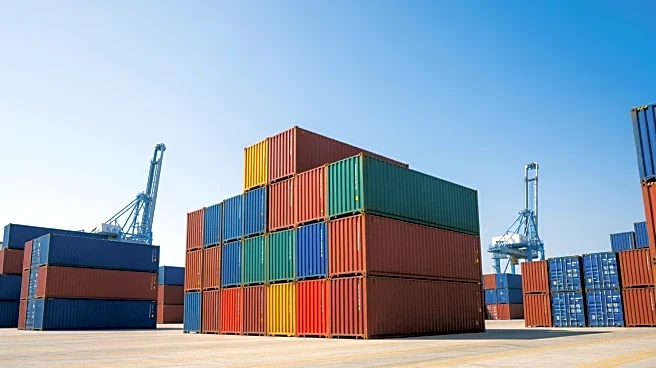What's Happening?
Small importers for large U.S. retailers have expedited their orders for China-made goods intended for spring, storing them in domestic warehouses to circumvent potential tariffs. This move comes in anticipation
of President Trump's threatened 100% tariffs on Chinese imports, which were later nullified following discussions at the ASEAN Summit. Importers, including those supplying major retailers like Walmart and Amazon, have increased their inventory levels significantly, betting on stable consumer spending despite economic uncertainties. The strategy of front-loading orders has been prevalent as businesses aim to mitigate the impact of fluctuating tariffs.
Why It's Important?
The decision by U.S. importers to front-load orders highlights the ongoing uncertainty in international trade relations, particularly between the U.S. and China. This approach reflects the broader impact of tariff policies on supply chain management and inventory strategies. Retailers are facing increased warehousing costs and potential risks associated with holding excess inventory. The situation underscores the challenges businesses face in navigating trade policies and the potential economic implications of tariff impositions, which could affect consumer prices and spending patterns.
What's Next?
With the tariff threat temporarily lifted, importers may continue to adjust their strategies based on future trade negotiations and tariff announcements. The potential extension of the tariff truce beyond November 10 could influence importers' decisions on inventory management and order placements. Stakeholders, including retailers and suppliers, will likely monitor developments closely to adapt to any changes in trade policies that could impact their operations and financial planning.








